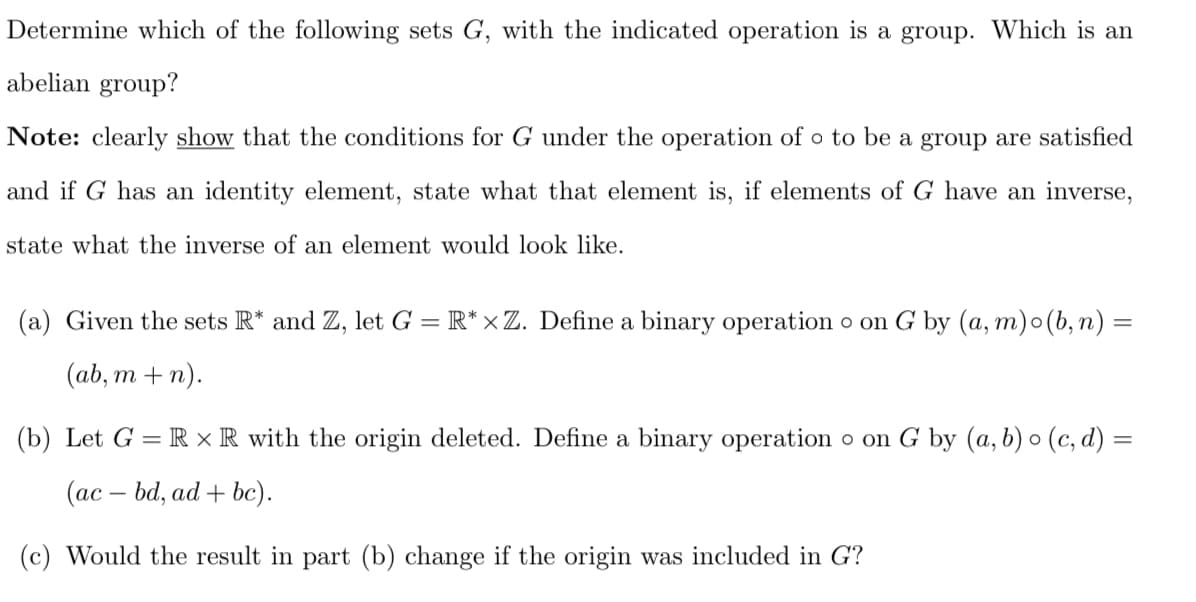Determine which of the following sets G, with the indicated operation is a group. Which is an abelian group? Note: clearly show that the conditions for G under the operation of o to be a group are satisfied and if G has an identity element, state what that element is, if elements of G have an inverse, state what the inverse of an element would look like. (a) Given the sets R* and Z, let G = R*×Z. Define a binary operation o on G by (a,m) o (b, n) = (ab, m+n).
Determine which of the following sets G, with the indicated operation is a group. Which is an abelian group? Note: clearly show that the conditions for G under the operation of o to be a group are satisfied and if G has an identity element, state what that element is, if elements of G have an inverse, state what the inverse of an element would look like. (a) Given the sets R* and Z, let G = R*×Z. Define a binary operation o on G by (a,m) o (b, n) = (ab, m+n).
Elements Of Modern Algebra
8th Edition
ISBN:9781285463230
Author:Gilbert, Linda, Jimmie
Publisher:Gilbert, Linda, Jimmie
Chapter3: Groups
Section3.2: Properties Of Group Elements
Problem 27E: 27. Suppose that is a nonempty set that is closed under an associative binary operation and that...
Related questions
Question

Transcribed Image Text:Determine which of the following sets G, with the indicated operation is a group. Which is an
abelian group?
Note: clearly show that the conditions for G under the operation of o to be a group are satisfied
and if G has an identity element, state what that element is, if elements of G have an inverse,
state what the inverse of an element would look like.
(a) Given the sets R* and Z, let G = R* ×Z. Define a binary operation o on G by (a,m)o(b, n) =
(ab, m+n).
(b) Let G = R XR with the origin deleted. Define a binary operation o on G by (a, b) o (c,d) =
(ac - bd, ad + bc).
(c) Would the result in part (b) change if the origin was included in G?
Expert Solution
This question has been solved!
Explore an expertly crafted, step-by-step solution for a thorough understanding of key concepts.
This is a popular solution!
Trending now
This is a popular solution!
Step by step
Solved in 2 steps

Recommended textbooks for you

Elements Of Modern Algebra
Algebra
ISBN:
9781285463230
Author:
Gilbert, Linda, Jimmie
Publisher:
Cengage Learning,

Elements Of Modern Algebra
Algebra
ISBN:
9781285463230
Author:
Gilbert, Linda, Jimmie
Publisher:
Cengage Learning,